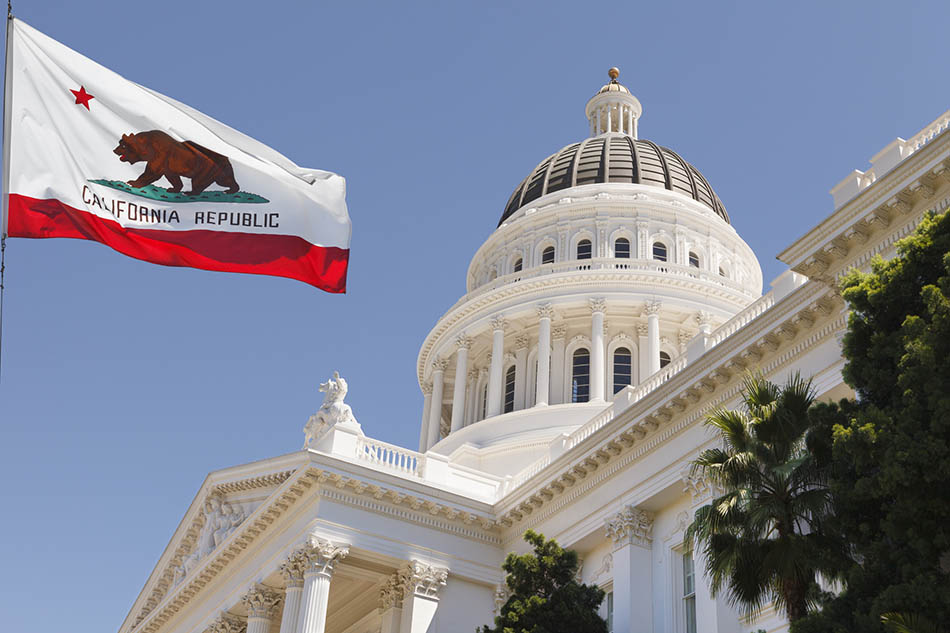ISPs Drop Challenge to California Net Neutrality Law
Appeals court had ruled against their request for injunction of enforcement

The smarter way to stay on top of the multichannel video marketplace. Sign up below.
You are now subscribed
Your newsletter sign-up was successful
Internet service providers have dropped their challenge of a U.S. District Court’s ruling upholding California’s network neutrality law.
The state adopted the California Internet Consumer Protection and Net Neutrality Act of 2018 (SB 822), prohibiting blocking, throttling and paid prioritization, after the Federal Communications Commission eliminated its similar net neutrality rules and reclassified internet access as a Title I information service under Trump-era chairman Ajit Pai.
The ISPs had already lost a federal district court challenge to the law and two appeals court efforts to block enforcement.
A three-judge panel of the U.S. Court of Appeals for the 9th Circuit had denied the request of ACA Connects, NCTA, CTIA and USTelecom for an injunction of enforcement of the California law while their underlying challenge was appealed. The ISPs then asked the full 9th Circuit to review that panel decision, a request that was denied.
It is the underlying challenge to the initial district court ruling, and thus to the law, that the ISPs have now dropped, according to court documents. The suit was dismissed without prejudice, which means ISPs could refile it if they chose.
The Republican Trump administration had also challenged the California law in court, but the Biden administration withdrew that — Democratic President Joe Biden is a net neutrality rule fan.
ISPs had argued that California‘s adoption of net neutrality rules were preempted by the FCC‘s decision to roll back its own rules against blocking, throttling and paid prioritization, which had prompted California to create similar rules to fill what it saw as a regulatory void.
The smarter way to stay on top of the multichannel video marketplace. Sign up below.
Also: ACA Connects Makes Its Case Against California Net Neutrality Law
The three-judge 9th Circuit panel (Judges Mary M. Schroeder, J. Clifford Wallace and Danielle J. Forrest) — one of the most liberal circuits in the federal appeals court system — had agreed with the federal district court that the FCC lacked the authority to preempt the state law because in reclassifying internet access as an information service under Title I of the Communications Act, the FCC no longer had the authority to regulate the internet in the way it did when broadband was a Title II telecommunications service.
The panel pointed to the U.S. Court of Appeals for the D.C. Circuit‘s decision upholding the FCC’s Title I reclassification, but also striking down an accompanying order asserting the reclassification preempted state net neutrality rules.
The 9th Circuit panel also had rejected the ISPs’ contention that the California law was preempted because it conflicted with the underlying FCC policy or because interstate service was the sole province of federal law.
“The ISPs threw in the towel today on their challenge to California’s net neutrality law,” said Andrew Jay Schwartzman, senior counselor to the Benton Institute for Broadband & Society, one of those defending the law before both the federal district court and the 9th Circuit. “Realizing that they could not successfully appeal the January 2022, decision of the U.S. Court of Appeals for the Ninth Circuit to the Supreme Court, the ISPs gave up. They were forced to accept what most observers had seen: in the wake of the Federal Communications Commission’s decision disclaiming interest in treating broadband access service as subject to federal regulation, the states were freed to adopt their own requirements.
“Several other states have adopted net neutrality requirements by statute or executive order. The reasoning of the 9th Circuit court allows those provisions to remain in effect as well,” he said, adding: “The end of this litigation is a boon for free speech, competition and innovation on the internet.” ■
Contributing editor John Eggerton has been an editor and/or writer on media regulation, legislation and policy for over four decades, including covering the FCC, FTC, Congress, the major media trade associations, and the federal courts. In addition to Multichannel News and Broadcasting + Cable, his work has appeared in Radio World, TV Technology, TV Fax, This Week in Consumer Electronics, Variety and the Encyclopedia Britannica.

